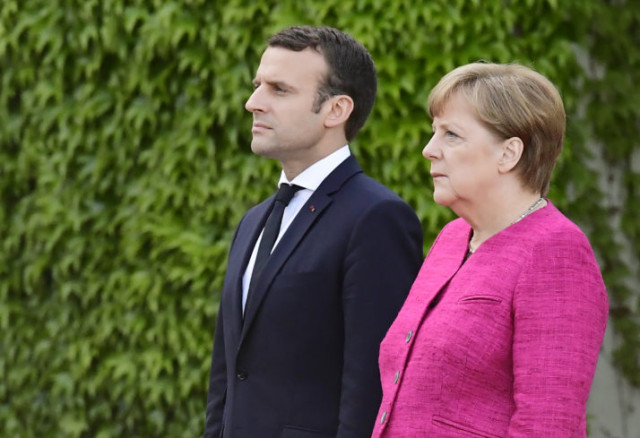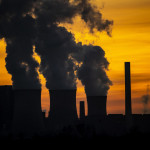 Ukraine reports 5,276 new COVID-19 cases
Ukraine reports 5,276 new COVID-19 cases
 Zelensky: Every third Ukrainian considers road construction one of greatest achievements of 2021
Zelensky: Every third Ukrainian considers road construction one of greatest achievements of 2021
 Ukraine ready to implement Minsk agreements, but Russia's desire needed - Yermak
Ukraine ready to implement Minsk agreements, but Russia's desire needed - Yermak
 Michel: EU unanimously agree to roll over economic sanctions against Russia
Michel: EU unanimously agree to roll over economic sanctions against Russia
 Actions by Ukraine's partners will help prevent worst-case scenario - Zelensky
Actions by Ukraine's partners will help prevent worst-case scenario - Zelensky
 COVID-19 in Ukraine: Health officials confirm 8,899 daily cases as of Dec 17
COVID-19 in Ukraine: Health officials confirm 8,899 daily cases as of Dec 17
 Macron tells Zelensky he declared support for Ukraine in call with Putin
Macron tells Zelensky he declared support for Ukraine in call with Putin
 Zelensky, Scholz discuss gas transit through Ukraine after 2024
Zelensky, Scholz discuss gas transit through Ukraine after 2024
 Ukraine ready for any format of talks with Russia - Zelensky
Ukraine ready for any format of talks with Russia - Zelensky
 Ukraine’s only journalist in Russia facing extremism charges - lawyer
Ukraine’s only journalist in Russia facing extremism charges - lawyer
 PM Shmyhal: First two applications for investment projects worth $96 million filed
PM Shmyhal: First two applications for investment projects worth $96 million filed
 Zelensky, PM of Italy discuss security situation around Ukraine
Zelensky, PM of Italy discuss security situation around Ukraine
 President signs off State Budget 2022
President signs off State Budget 2022
 London considering all options for responding to Russia's aggression against Ukraine
London considering all options for responding to Russia's aggression against Ukraine
 Putin, Biden to hold another round of talks
Putin, Biden to hold another round of talks
 Some 260,000 Ukrainians “victims of human trafficking” over 30 years - prosecutor general
Some 260,000 Ukrainians “victims of human trafficking” over 30 years - prosecutor general
 Ukraine plans to create center to protect energy infrastructure from cyber attacks
Ukraine plans to create center to protect energy infrastructure from cyber attacks
 No clear idea so far when Normandy Four top diplomats set to meet - German Ambassador
No clear idea so far when Normandy Four top diplomats set to meet - German Ambassador
 Ukraine receives EUR 600M in macro-financial assistance from EU
Ukraine receives EUR 600M in macro-financial assistance from EU
 Zelensky holds phone conversation with PM of Israel
Zelensky holds phone conversation with PM of Israel
 Ukraine sets new daily COVID vaccination record
Ukraine sets new daily COVID vaccination record
 MFA: European Union has not yet removed Ukraine from list of safe countries
MFA: European Union has not yet removed Ukraine from list of safe countries
 Kyiv records 1,023 new COVID-19 cases, 29 deaths
Kyiv records 1,023 new COVID-19 cases, 29 deaths
 G7 ambassadors welcome adoption of law on NABU status
G7 ambassadors welcome adoption of law on NABU status
 Ukraine can increase Covid vaccination rates to 1.5M a week – Liashko
Ukraine can increase Covid vaccination rates to 1.5M a week – Liashko
The revamped Franco-German alliance is fracturing thanks to the countries’ differing approaches to climate policy.
The rift between Paris and Berlin was evident ahead of a summit of EU leaders on Thursday and Friday where the bloc's long-term climate strategy is on the agenda, according to unpublished documents reviewed by POLITICO.
Climate policy is dividing countries, with some “vehemently opposed” to having any meaningful discussion on the topic at the summit, according to an EU diplomat.
France is spearheading a group of countries that want the EU to cut emissions to net zero by 2050 — meaning the bloc would absorb as much greenhouse gases as it emits. That’s seen as crucial in reaching the more ambitious goal of the 2015 Paris Agreement, which aims to limit global warming to 1.5 degrees.
But Germany, long at the forefront of pushing greener policies, is now getting cold feet thanks to the economic and political costs.
It’s a far cry from France and Germany's mutual declaration to undertake “ambitious actions to combat climate change” when they signed the Treaty of Aachen in January.
The differences between Berlin and Paris can be seen in the diplomatic struggle over the language meant to appear in the summit's climate policy conclusions.
According to draft summit conclusions, dated Wednesday and seen by POLITICO, leaders will “emphasize the importance of the EU submitting an ambitious long-term strategy by 2020 striving for climate neutrality ... while taking into account Member States’ specificities and the competitiveness of European industry,” without committing countries to a deadline. Leaders plan to be “returning to the issue” by the end of this year.
That's far less ambitious than Paris wanted.
National comments on the draft conclusions, dated March 11 and seen by POLITICO, show that France wants the EU to commit to cutting emissions to net zero “by 2050 in line with the 1.5 degree objective of the Paris Agreement, addressing the competitiveness of European industry.”
France’s efforts are backed by other countries such as Spain, the Netherlands, Luxembourg and Denmark.
Finland, which takes over the rotating Council presidency in July, also wants EU leaders to finalize guidance for the bloc’s long-term strategy “later this year” — a far more concrete demand than called for in the current leaders’ draft conclusions.
Berlin is far less enthusiastic.
Its comments show Germany isn’t keen to bind itself and other EU members to a fixed timeline to cut emissions to net zero or to tie its strategy to the Paris Agreement’s 1.5-degree goal. It did, however, keep the reference to climate neutrality in the text.
Hitting the EU’s climate and green energy goals is a major headache for Berlin. Last year, it had to admit that it will miss its 2020 target to cut emissions by 40 percent by a wide margin. Politicians are now scrambling to ensure the country meets its 2030 climate goals, and are locked in a domestic power struggle over how to design climate legislation to implement the targets.
Berlin’s wariness is shared by the Visegrad Group of Poland, the Czech Republic, Slovakia and Hungary.
Those countries worry about the potentially high social and economic costs of a transition to a low-carbon economy, and — in contrast with Berlin — also want to delete the reference to climate neutrality.
Germany's shift is alarming climate campaigners, who are used to the country being a green champion.
“When it comes to climate change, there is clearly a growing rift between Germany and Poland on one side, and France and other governments on the other," said Sebastian Mang, Greenpeace EU’s climate policy adviser. "Angela Merkel is clearly on the wrong side of history.”













































































































































